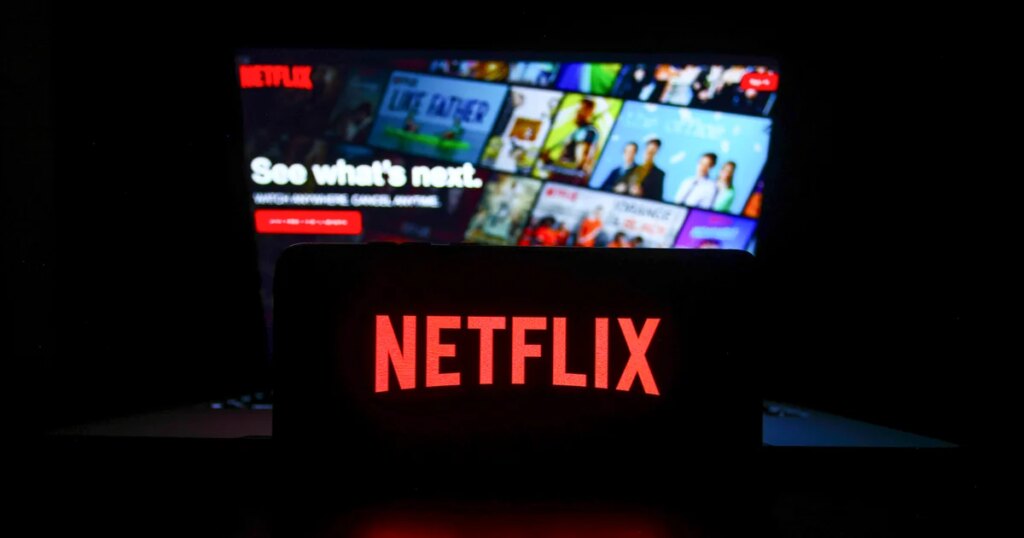Recent legislation in California has emerged from a unique situation involving an 8-month-old and the noise generated by streaming service commercials. Governor Gavin Newsom has signed Senate Bill 576 into law, addressing the issue of loud ads on platforms like Netflix and Prime Video. The law seeks to regulate commercial volume levels, ensuring they do not exceed the volume of the content being viewed, a change aimed at benefiting families and viewers across the state.
| Article Subheadings |
|---|
| 1) Background of the Legislation |
| 2) The Role of the Keller Family |
| 3) The Legislative Journey |
| 4) Impact on Streaming Services |
| 5) Future of Commercial Regulation |
Background of the Legislation
The genesis of Senate Bill 576 can be traced back to ongoing concerns about the disparity between programming volume and the volume of commercials on streaming services. In 2010, federal regulations under the Commercial Advertisement Loudness Mitigation (CALM) Act addressed this issue for traditional broadcasters, mandating that commercials should not be louder than the programming they interrupt. However, as streaming services gained popularity, this regulation did not extend to them, resulting in an absence of protections for viewers. California’s lawmakers recognized a gap in consumer protection that demanded attention, hence sparking the initiative for this new legislation.
The Role of the Keller Family
The advocacy for the new law can be traced directly back to the personal experiences of Zach and Rachel Keller, who became vocal about the issue after struggling with their baby, Samantha’s, sleep schedule due to loud commercials. The couple’s attempts to enjoy television evenings were frequently disrupted, as Samantha would be awakened by loud commercials, even when they kept the volume low. In an interview, Rachel shared her frustration: “A lot of times, we have the volume so low that we just have subtitles running and still, the commercial ad volumes are so ear-piercing that it wakes her up.” Their story exemplifies how everyday family experiences can drive legislative change.
The Legislative Journey
Senate Bill 576 was championed by state Senator Tom Umberg, who was approached by Zach Keller, recognizing the necessity of closing the loophole that allowed streaming services to escape regulation. The bill quickly gained traction within the legislature, sailing through the state Senate and Assembly. However, it encountered resistance from the powerful Motion Picture Association, which argued that imposing volume restrictions could harm smaller independent streaming services. The industry’s concerns primarily revolved around the technical feasibility of enforcing such regulations, given that ads originate from various diverse sources over which platforms may have limited control.
Impact on Streaming Services
The passage of SB 576 signifies a substantial shift in how streaming services may operate within California. This law mandates a standardization of ad volumes, meaning that once implemented, commercials will not be allowed to breach the user’s comfort threshold established by the ongoing programming. Despite the Motion Picture Association’s objections, Senator Umberg maintains that it is entirely feasible for streaming services to regulate the loudness of their commercials. “They can basically figure out how to make them within a normal range,” Umberg asserted, reinforcing the belief that technological solutions exist for the concerns raised.
Future of Commercial Regulation
Once signed into law by Governor Gavin Newsom, the regulations outlined in Senate Bill 576 are set to take effect on July 1, 2026. This forward-looking legislation serves not only California residents but also highlights the potential for similar measures across the nation. As California often leads the way on regulatory matters, the hope is that other states might follow suit in creating fairer policies regarding commercial volume in the near future. The Kellers’ story, along with the broad complaints voiced by Californians, represents a larger cultural push for more harmonious media consumption experiences.
| No. | Key Points |
|---|---|
| 1 | Senate Bill 576 prohibits loud commercials on streaming platforms in California. |
| 2 | The legislation was influenced by the experiences of the Keller family. |
| 3 | Senator Tom Umberg championed the bill to close an existing regulatory loophole. |
| 4 | The bill faced opposition from the Motion Picture Association, citing potential harm to small services. |
| 5 | The law will take effect on July 1, 2026, and may inspire similar regulations nationwide. |
Summary
The introduction of Senate Bill 576 marks a significant milestone in consumer protection in California, addressing a growing issue as families and individuals increasingly rely on streaming services for entertainment. Through the advocacy of concerned citizens like the Keller family and the support of legislators such as Tom Umberg, the state is paving the way for a more comfortable viewing experience. This legislation serves as a potential model for future regulatory efforts in other states, aimed at addressing the evolving dynamics of digital content consumption.
Frequently Asked Questions
Question: What does Senate Bill 576 aim to achieve?
Senate Bill 576 aims to regulate the volume of commercials on streaming services, ensuring they do not exceed the volume of the content being viewed.
Question: When will the new commercial volume regulations take effect?
The new regulations will come into effect on July 1, 2026.
Question: Who was a key advocate for this legislation?
Senator Tom Umberg was a key advocate for the legislation, prompted by the experiences of Zach and Rachel Keller.


